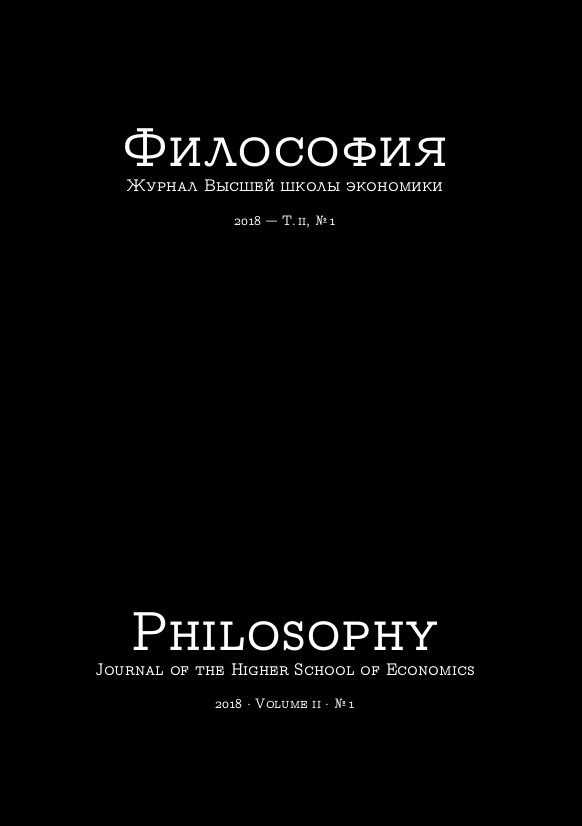Об одном атрибуте деятельного ума у Аристотеля
Аннотация
В статье рассматривается один из атрибутов деятельного ума —ἕξις, а также сравнение деятельного ума со светом. В трактате «О душе» (III.5) Аристотель, уподобляя деятельный ум свету, характеризует его как «некое свойство» (ὡς ἕξις τις). Именование деятельного ума как ἕξις и его сравнение со светом рождает двоякую сложность. (1) Можно ли, будучи свойством (как переводится ἕξις в русском варианте «О душе»), одновременно оставаться субстанцией — быть «несмешанным, отделенным, вечным, бес- смертным»? Очевидно, что ἕξις подразумевает нечто иное, чем просто свойство или качество, в связи с чем в статье делается небольшой обзор этого термина у Аристотеля. (2) Аристотелевское уподобление деятельного ума свету представляет собой просто оборот речи или нечто большее? Анализ природы света («О душе», II.7) показывает, что уподобление Аристотелем ума свету — не столько метафора, сколько последовательное объяснение того, как проявляет себя в человеческой душе деятельный ум. Поскольку термин ἕξις Аристотель относит и к свету, и деятельному уму, то прояснение феномена света должно содействовать и прояснению того, что есть деятельный ум. В ходе исследования автор обращается к интерпретациям тех комментаторов Аристотеля, у которых
также проблематизируется этот параллелизм света и деятельного ума.






